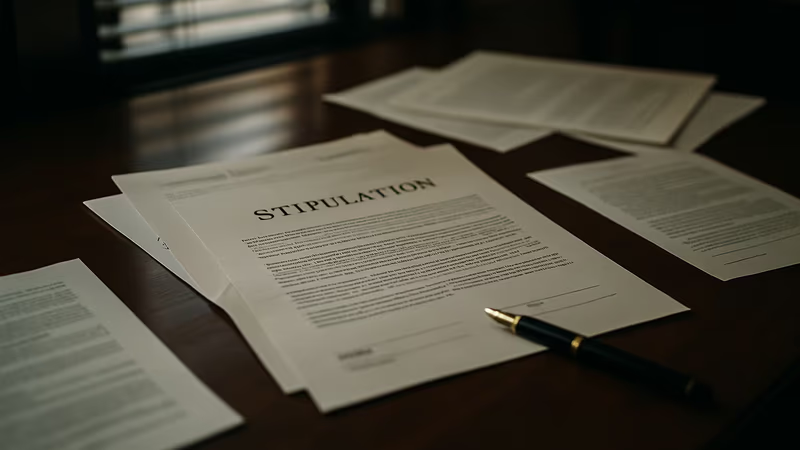Key Takeaway
Court rules on debt collection case where borrower missed one payment after paying $45,000, examining whether strict enforcement of settlement stipulation was appropriate.
RCS Recovery Servs., LLC v Mensah, 2018 NY Slip Op 07766 (2d Dept. 2018)
The Court really went out on a limb here and did the right thing. Question – was it correct legally? They said so.
(1) In 2007, the defendant borrowed $74,000 from the plaintiff’s predecessor-in-interest, Wells Fargo Bank, N.A., as evidenced by a note, which provided that he would repay the sum due, with interest at the rate of 9.5% per year. The defendant allegedly defaulted on the note on June 17, 2010, and this action ensued. On December 6, 2013, with the defendant’s consent, judgment in the total sum of $95,083.08 was entered in favor of the plaintiff and against the defendant.
(2)On July 2, 2014, the parties entered into a stipulation of settlement whereby the plaintiff agreed to accept the sum of $65,000 in full settlement of the judgment. An initial $5,000 payment was made on or about the date of the stipulation, and the remaining $60,000 was to be paid in monthly installments of $5,000, due on the 25th day of each month. The parties agreed that the judgment would remain as a lien on the defendant’s property until full payment of the amounts owed under the stipulation
(3) After paying a total of $45,000 without incident, the defendant inadvertently missed a payment due on March 25, 2015. By letter dated April 7, 2015, the plaintiff notified the defendant that he was in default and informed him of its election to continue to enforce the judgment pursuant to the terms of the stipulation. The defendant avers that he attempted, in good faith, to cure his default, but the plaintiff refused and insisted upon full payment of the amount owed under the judgment, which was more than double what was still owed under the stipulation.”
(4a) However, under the circumstances of this case, the Supreme Court should have granted the alternate branch of the defendant’s motion, which was, in effect, to preclude the plaintiff from enforcing the default provision of the stipulation without affording the defendant a reasonable opportunity to cure his default. “Under almost any given state of facts, where to enforce a stipulation would be unjust or inequitable or permit the other party to gain an unconscionable advantage, courts will afford relief” (Goldstein v Goldsmith, 243 App Div 268, 272; see Weitz v Murphy, 241 AD2d 547, 548; Bank of N.Y. v Forlini, 220 AD2d 377, 378).
(4b) Here, the defendant’s default was inadvertent and minor in nature when measured against the harsh result that would be obtained upon literal enforcement of the default provision in the stipulation (see Bank of N.Y. v Forlini, 220 AD2d at 378). Insofar as the plaintiff failed to offer the defendant any opportunity to cure his default before seeking to recover the full amount due under the judgment, the plaintiff’s conduct could be interpreted as an attempt to take advantage of a technical default to obtain payment of the far greater sum which the plaintiff had originally sought, but agreed to forgo as part of the settlement (compare Weitz v Murphy, 241 AD2d at 548-549 and Bank of N.Y. v Forlini, 220 AD2d at 378, with McKenzie v Vintage Hallmark, 302 AD2d 503, 504).
Look, it is a great case. It definitely takes some of the sting out of inadvertent stupidity.

